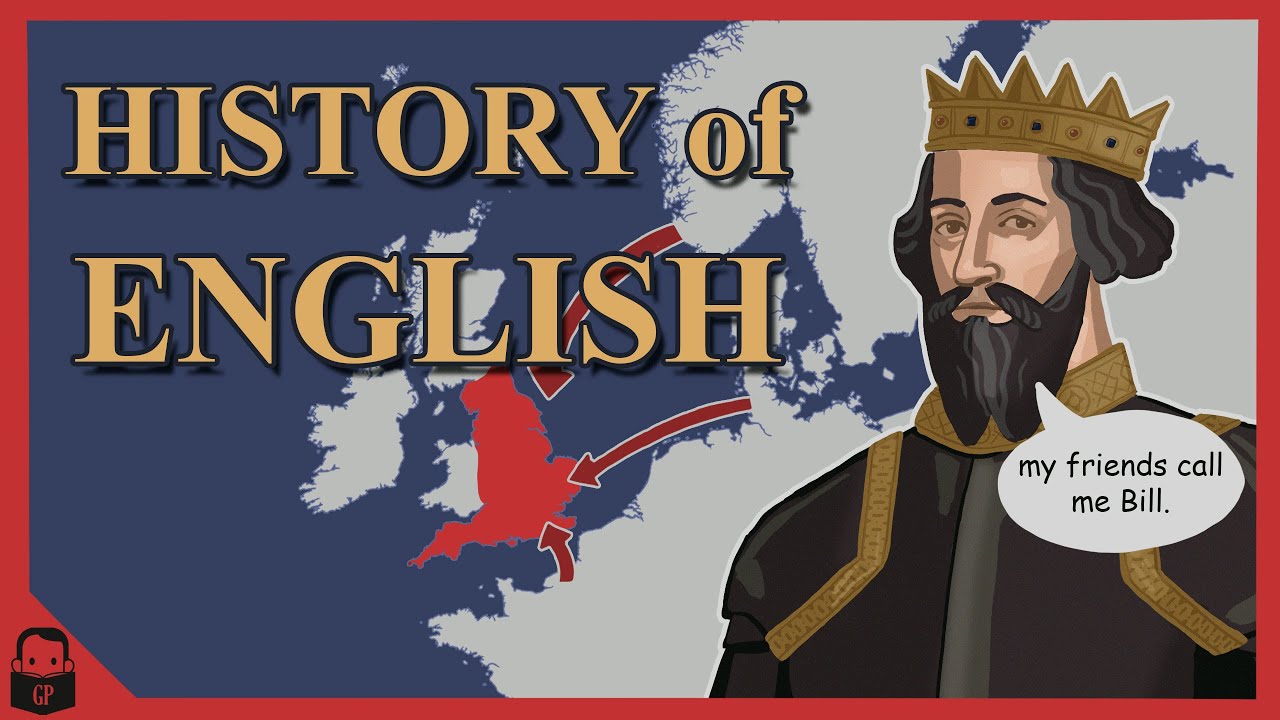History of the English Language (1943)
Summary
TLDRThis video traces the evolution of the English language, starting from its Indo-European roots and its spread across Europe and beyond. It highlights key influences, including the Celtic, Latin, and Scandinavian languages, as well as significant contributions from Norman French after the conquest of 1066. Over the centuries, English absorbed thousands of words from various languages, reflecting its adaptability and global reach. By the 17th century, it had become a rich medium of expression, exemplified in the works of Shakespeare. Today, English serves as a global lingua franca, enriched continually by new words from around the world.
Takeaways
- 😀 English originated from a group of languages called Indo-European, which spread from regions near South Russia to various parts of Europe and beyond.
- 🌍 It became a world language, spoken or recognized as an official language across many countries.
- 📜 Around 2000 years ago, English dialects divided into three main groups: eastern, northern, and western, with the western group evolving into modern English.
- 🏰 The Romans influenced the British Isles, where Celtic and Latin were spoken before Germanic tribes invaded, bringing their dialects to the region.
- 🔄 Early English was flexible and started incorporating words from Celtic, Latin, and later, Scandinavian languages.
- ⚔️ The Viking invasions introduced numerous everyday words into English, enriching its vocabulary significantly.
- 🏛️ The Norman Conquest in 1066 further expanded English by adding thousands of French words related to law, food, and architecture.
- 🌐 By the 15th century, English had integrated many words from various languages due to trade and exploration, including terms from Spanish, Portuguese, and Native American languages.
- 📝 Shakespeare exemplified the richness of the English language, using around 20,000 words in his works, many of which were borrowed from other languages.
- 📈 The global spread of English continued, especially through the British Empire, resulting in a language rich in diversity and adaptability to new concepts and inventions.
Q & A
What is the origin of the English language?
-The English language originated from a group of Indo-European languages spoken between South Russia and the Baltic Sea several thousand years ago.
Which languages influenced the development of English?
-English was influenced by Celtic, Latin, Norse (from Scandinavian invaders), and French (after the Norman Conquest).
What were the main dialects of early English?
-Early English had four main dialects, with Mercian being the central one that formed the basis of modern English.
How did the Romans impact the English language?
-The Romans influenced English by introducing Latin words, particularly names of plants and agricultural terms.
What contributions did the Vikings make to the English language?
-The Vikings contributed several everyday words to English, especially nautical terms such as 'sail', 'ship', and 'haven'.
How did the Normans influence English after 1066?
-After the Norman Conquest in 1066, the Normans introduced many French words related to law, food, and architecture into English.
What role did London play in the standardization of English?
-London became the legal and trade center of England during the Middle Ages, which helped standardize the form of English spoken there.
Which languages contributed to English during the Age of Exploration?
-During the Age of Exploration, English borrowed words from Spanish, Portuguese, and various Native American languages.
How did the Renaissance influence the English vocabulary?
-The Renaissance enriched English with many cultural terms from Italian, especially in architecture, music, literature, and art.
What are some examples of words borrowed from non-European languages?
-Examples include 'cockatoo' and 'chintz' from India, 'tea' from China, 'sash' and 'sofa' from Arabia, and 'kangaroo' from Australia.
Outlines

Esta sección está disponible solo para usuarios con suscripción. Por favor, mejora tu plan para acceder a esta parte.
Mejorar ahoraMindmap

Esta sección está disponible solo para usuarios con suscripción. Por favor, mejora tu plan para acceder a esta parte.
Mejorar ahoraKeywords

Esta sección está disponible solo para usuarios con suscripción. Por favor, mejora tu plan para acceder a esta parte.
Mejorar ahoraHighlights

Esta sección está disponible solo para usuarios con suscripción. Por favor, mejora tu plan para acceder a esta parte.
Mejorar ahoraTranscripts

Esta sección está disponible solo para usuarios con suscripción. Por favor, mejora tu plan para acceder a esta parte.
Mejorar ahoraVer Más Videos Relacionados
5.0 / 5 (0 votes)






